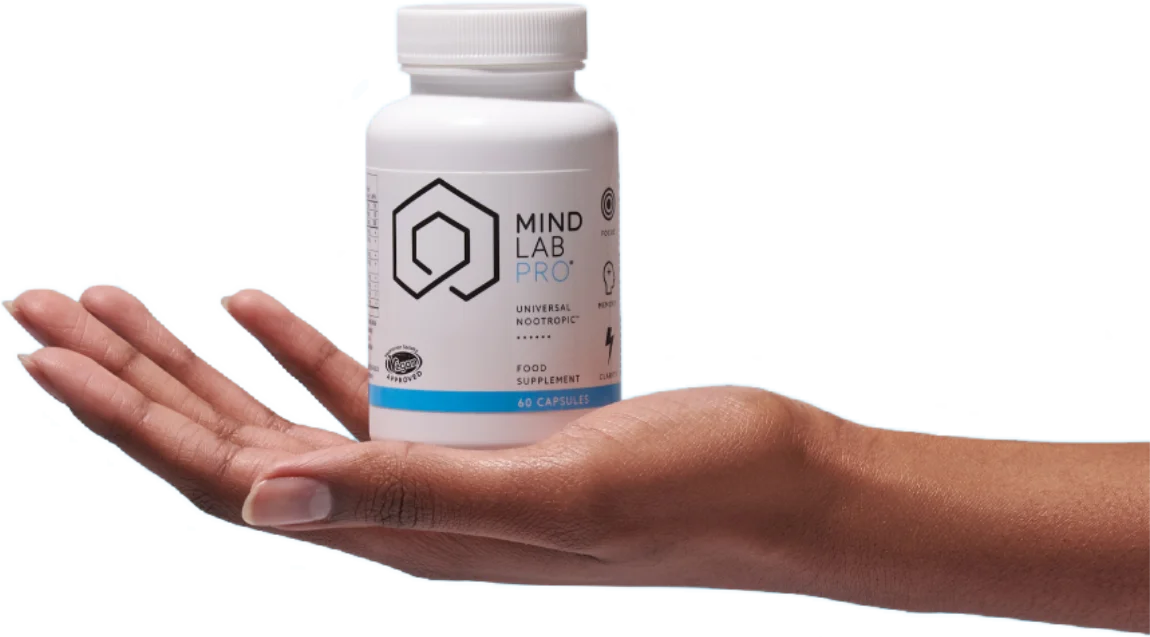Are you a chronic procrastinator? Recent findings link procrastination to mood, self-regulation, and negative reinforcement. As with other brain-related challenges, supplements may help. Specifically, nootropics for procrastination naturally promote a more active, energized and motivated mind-set -- helping to stop your stalling and spark your inner drive to get more stuff done.
In this guide, we start with what procrastination is and why it happens. Then we discuss some of the best individual nootropics for beating procrastination and taking care of business. Finally, we'll cover the best dietary supplements on the market that deliver the top nootropics for procrastination. Let's get to it!
Key Takeaways
- Procrastination isn’t “laziness”—it’s often stress + dopamine imbalance + weak executive control (focus, planning, working memory).
- Quick wins: lower stress reactivity and cut mental noise so starting feels easier.
- Core nootropics: Citicoline & Phosphatidylserine (executive function), L-Tyrosine/NALT (task initiation under stress), L-Theanine (calm focus), Bacopa & Lion’s Mane (learning/consistency), Rhodiola (anti-fatigue).
- Method beats megadoses: stack smart + time dosing (AM/early work block) + pair with tiny “first step” habits.
- Mind Lab Pro® combines 11 research-backed nutrients for everyday focus, motivation, memory, and stress performance—without stimulants.
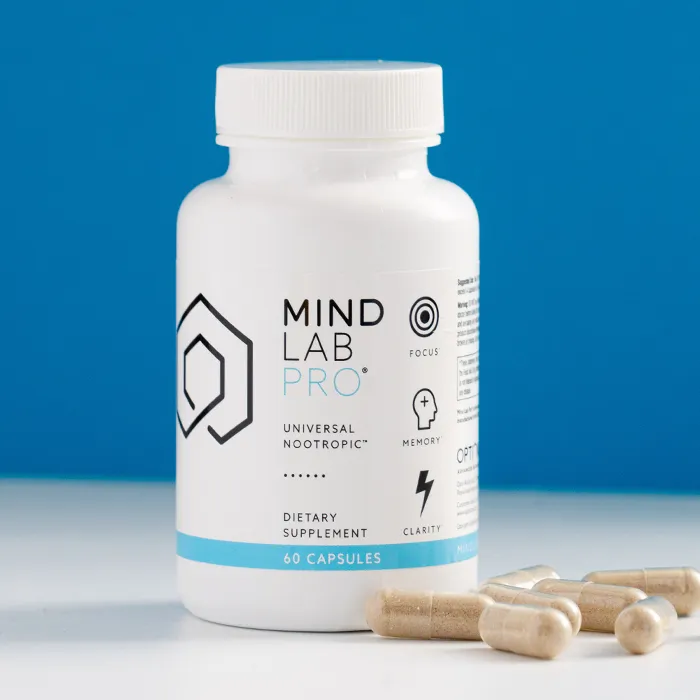
Best Nootropics for Procrastination in 2025: Mind Lab Pro®

Mind Lab Pro® (MLP®, the Universal Nootropic) supplies 11 dynamic natural nootropics including many of the best for procrastination.
MLP is designed to boost the whole brain, thereby enhancing a wide range of cognitive functions. Among those functions are several that may help with combating procrastination, such as:
- Enhancing mental energy naturally, without caffeine, so you can activate without jitters
- Supporting the brain chemistry associated with motivation and drive
- Fighting the effects of stress, apprehension and blue moods that are linked to procrastination
- Sharpening mental clarity to help provide the brainpower you need to face difficult tasks
Mind Lab Pro was created to help you perform better at everything. Work, studying, athletics, gaming, creating, socializing or any other activity where you want to excel.
And with that mindset, there's nothing that can hold you back from taking care of business and tackling your to-do list.
Additional nootropic procrastination supplements to consider
Mind Lab Pro® is the top pick, but it's not the only supplement you can take for procrastination. Here are some more high-quality formulations, which can be taken alone or seamlessly combined with MLP:
- Performance Lab® Prebiotic: Functional fiber that feeds probiotics for mood and motivation
- Caffeine 2: Ultramodern caffeine to help smash through doldrums without jitters and crashes
- Performance Lab® Omega-3: Algae-sourced DHA+EPA forms foundational mood support
- Performance Lab® Energy: Caffeine-free mental energy surge to help you get going
We'll go into greater detail on Mind Lab Pro and these other helpful nootropic supplements for procrastination towards the end of this article.
What is Procrastination?
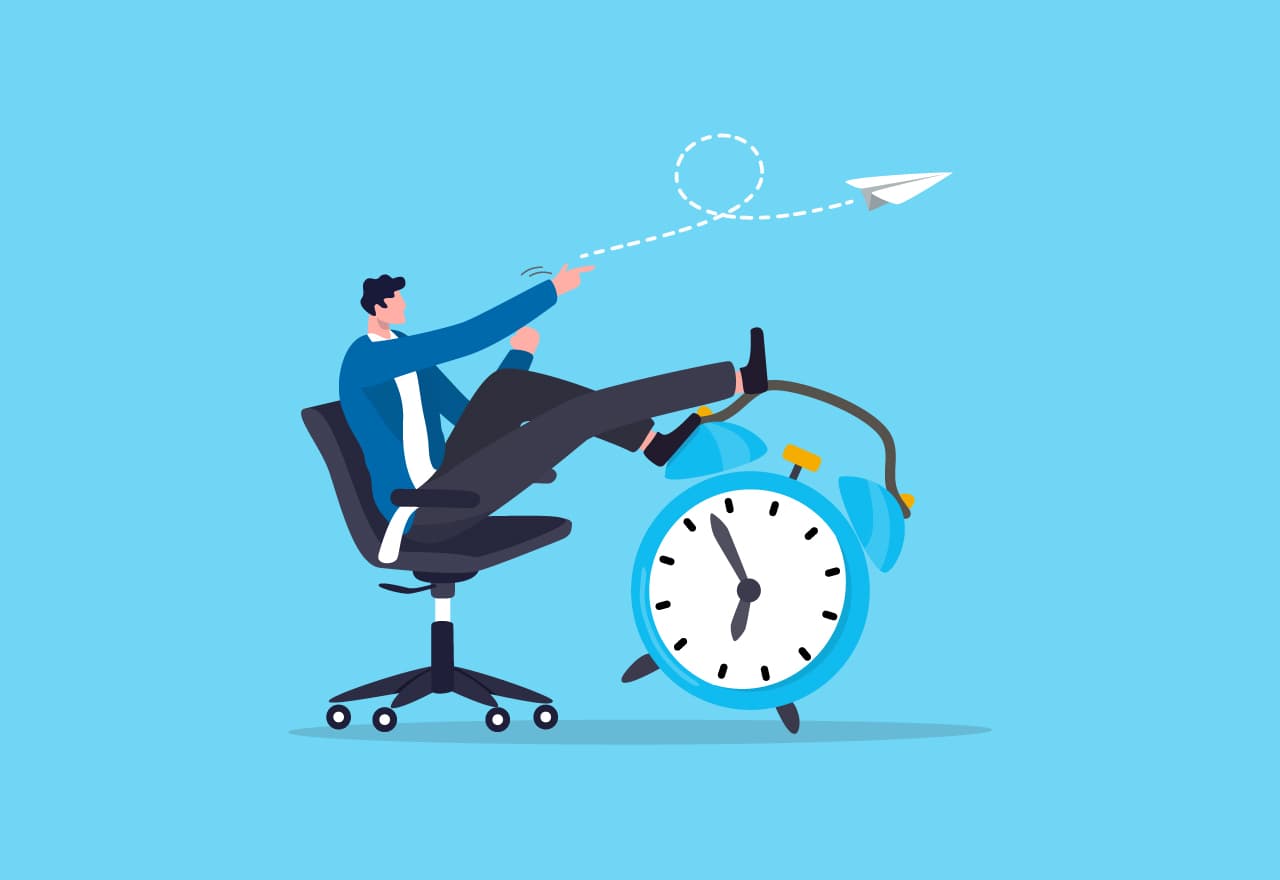
Chronic procrastination can hold us back in many ways -- professionally, personally, even physically in the context of fitness and health. Although it creates very real negative consequences, procrastination is all in our heads.
Psychologists define procrastination as a voluntary, irrational delay that people take even though they know it will bring a negative outcome.
With procrastination, there is a gap between our intentions and our actions. Especially when it comes to taking action on less pleasurable tasks.
Known as "Low self efficacy," this characteristic refers to a mindset where difficult jobs are regarded as intimidating challenges that should be avoided -- ultimately leading to procrastination.
Procrastination and the Brain
So why does procrastination happen? In this section we'll talk about some of the concerns associated with procrastination, as well as hinting at some of the ways nootropics may help. We'll start getting into individual nootropics for procrastination in the next section.
Limbic System Misfiring
The brain's limbic system controls emotions, stress response (fight or flight), and survival instincts. It is the first responder of the brain. When we don't feel like doing something, the limbic system sees that thing as a threat. It responds by drumming up stressful feelings in order to avoid the threat. Nootropics for stress could help ease the tension, potentially helping you to overcome procrastinating tendencies.
Learn more about nootropics for stress
Self-Regulation Failure
Self-regulation is the ability to inhibit inappropriate behaviors, stem emotionally-driven urges, and spur motivation. The prefrontal cortex (PFC) regulates the executive functions that support the cognitive processes related to self-regulation. Damage to the lateral portions of the PFC are linked to problems with planning and initiation, apathy, and lack of motivation, especially when multiple goals are involved.
The anterior cingular cortex (ACC) is also involved with self-regulation and cognitive control. Insufficient activity in the ACC can lead to extreme apathy, listlessness, wasting time and difficulty with goal-driven behaviors like completing a project.
Poor self-regulation can result in weakness of will and the classic negative reinforcement of giving in to feel good. Self-regulation failure may manifest as:
- Emotional eating
- Binge drinking
- Shopping sprees
- Problematic gambling
- Low self esteem
- Procrastination
Some potential nootropics for procrastination may work by helping us to improve self-regulation.
Procrastination and Mood, Depression and Anxiety
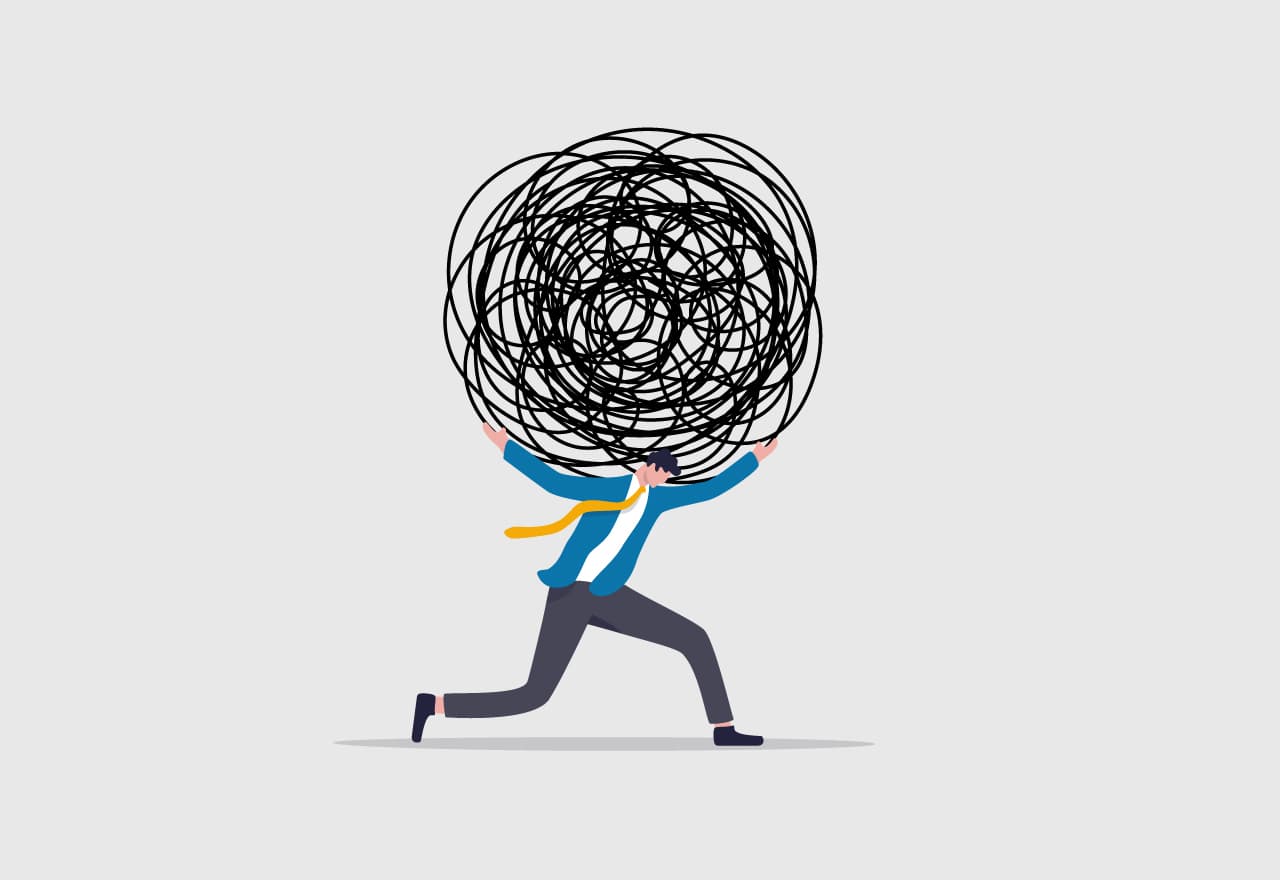
Researchers have found strong links between mood imbalance and procrastination, noting that: "Students experiencing high levels of anxiety and depression may be more vulnerable to procrastination as a result of negative repetitive thought, particularly regarding past events."(1) Researchers have also noted a positive correlation between anxiety and procrastination.(2)
People who procrastinate tend to achieve less and to under-perform on tasks they do complete.
Habitual procrastination can turn into a depressing cycle. When you know you're consistently not living up to your potential, unhappiness can become the norm, leading to more procrastination, and on and on.
Nootropics for procrastination could help break the cycle by supporting a brighter, calmer, more motivated mood.
Learn more about the best nootropics for anxiety
Attention & Executive Function Issues
Attention Deficit Hyperactivity Disorder (ADHD) is a neurodevelopmental condition characterized by symptoms of inattention, hyperactivity, and impulsivity. Procrastination is a commonly reported concern in those with ADHD.
In these people, the tendency to delay or avoid tasks is not necessarily due to laziness or a lack of motivation. Instead, it's linked to the challenges that ADHD individuals face in terms of executive functioning.
Executive functions are a set of cognitive processes that facilitate planning, focus, self-regulation, and task initiation.
Individuals with ADHD often struggle with these functions, as well as with low self efficacy -- making it difficult for them to prioritize tasks, break down larger tasks into manageable steps, and resist distractions.
There are several natural nootropic supplements that have shown promise for helping with attention, which may indirectly help to reduce procrastination.
Learn more about the best nootropics for ADHD
Low Brain Energy and Procrastination
Brain energy is crucial for supporting a wide range of neural functions, including those related to cognitive tasks and decision-making.
Procrastination, at its core, often involves cognitive conflicts between short-term rewards and long-term goals, demanding higher-order cognitive processes like executive function, impulse control, and task initiation.
An efficient energy metabolism is necessary to fuel these cognitive processes.
If there's an imbalance or inefficiency in brain energy metabolism, it may lead to decreased neural activity in regions like the prefrontal cortex, which is vital for executive functions. Brain-energizing nootropics may help.
Learn more about nootropics for energy
My mind seems very clear and I'm very motivated to do the things I procrastinated about.Steve A.
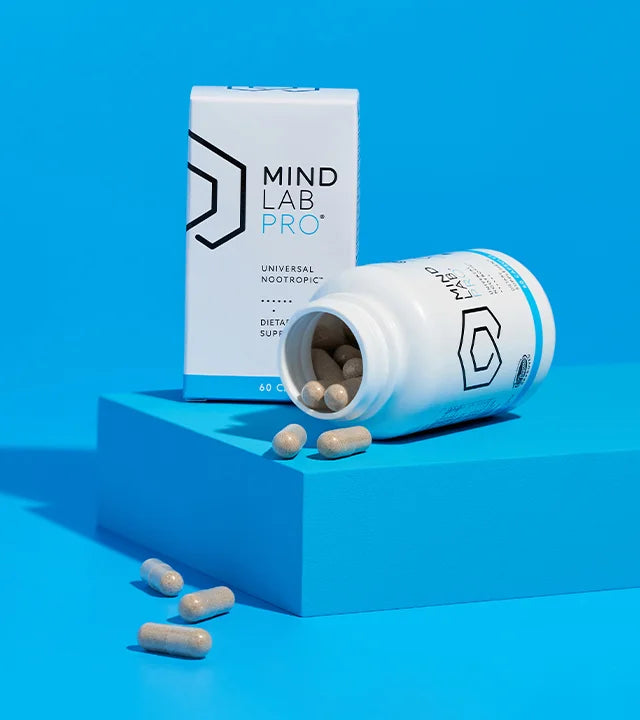
Nootropics for Procrastination
Brain-boosting nootropic supplements, also known as cognitive enhancers or smart drugs, can help cognition in many ways.
Among the many nootropic benefits are apparent advantages for energized, dynamic thinking that can launch you into action and leave procrastination in the dust.
Citicoline

Citicoline supports mental performance in many ways, but when it comes to procrastination, its ability to increase mental energy may have the biggest impact.(3)
Citicoline promotes brain energy metabolism to revitalize underperforming brain cells, ultimately enhancing attention, concentration, focus and overall cognitive function.
Citicoline's versatile brain support may help to spark motivation and confidence, especially when stacked with other nootropics for procrastination.
Rhodiola Rosea

Rhodiola rosea is an adaptogen herb that helps your body and mind to more effectively cope with the stress that is closely tied to procrastination.
It also fights the mental fatigue that can drain motivation.(4) Instead it strengthens mental resilience and restores energized cognitive performance that makes it easier to tackle less enjoyable tasks (instead of avoiding them).
If procrastination is interfering with work, Rhodiola rosea might be perfect for you: In Russian herbalism, this golden root was traditionally used to help farmers power through harvest, giving them the drive and energy to work long hours under difficult conditions.
Learn more about Rhodiola Rosea
N-Acetyl L-Tyrosine (NALT)

Researchers have linked high levels of stress and poor ability to cope with stress to greater struggles with procrastination. N-Acetyl L-Tyrosine (NALT) may combat procrastination by supporting fatigue management and enhancing cognitive performance under stress.(5)
N-Acetyl L-Tyrosine is a more bioavailable form of Tyrosine, an amino acid involved in cell communication. It is also a precursor to dopamine, a neurotransmitter linked to improved focus, alertness, mood, and yes, motivation.
With these attributes, NALT may help to promote an active, productive and energized mind-state before you can say procrastinate.
Phosphatidylserine (PS)

Phosphatidylserine has many brain benefits but is most famous because it improves memory. When it comes to procrastination, PS enhances one's ability to focus, organize thoughts, sustain mental clarity and maintain attention on tasks -- which can reduce the mental friction often associated with starting or completing tasks.
Phosphatidylserine can also help modulate the body's response to stress by attenuating the release of cortisol, a stress hormone.(6) Reduced stress levels can clear mental clutter, making it easier to approach tasks with a calm, centered mindset, rather than delay and avoidance.
Learn more about Phosphatidylserine (PS)
L-Theanine

L-theanine may help you beat procrastination. It crosses the blood brain barrier and inhibits excessive neuronal response to stress by supporting GABA levels. GABA settles brain activity, improves focus, reduces anxiety and blocks distractions tied to procrastination.
L-theanine may also raise Alpha brain waves. This frequency is linked with "wakeful relaxation," where you are fully alert, yet tranquil.(7) This mind-state seems perfect for anyone with anxiety-induced procrastination.
Beyond its calming properties, L-Theanine reduces caffeine jitters -- which is especially helpful considering that caffeine itself is effective for procrastination.
Caffeine

Caffeine is the king of natural stimulants. It gives a temporary boost to focus and concentration, making it easier for individuals to begin tasks they've been putting off.
For those struggling with procrastination, a moderate dose of caffeine may help you "snap out of it," making it easier to transition from a state of avoidance to active engagement with tasks.
It can enhance the brain's ability to process information, improve mood, and increase motivation, all of which can be beneficial in overcoming procrastination. But remember that dosage is key: too much could lead to insomnia, jitters, or increased heart rate.
Lion's mane mushroom

Lion's Mane Mushroom is a natural nootropic found in premium brain supplements due to its potential benefits for anxiety, depression, and other cognitive concerns. Its active nootropics are called hericenones and erinacines.
Studies suggest that its role in promoting Nerve Growth Factor, or NGF (8), can offer a range of neurological advantages, including potential relief for individuals grappling with anxiety.
Given that mood imbalance is closely linked to problems with procrastination, Lion's Mane makes sense as a nootropic to support a healthy state of mind for getting things done.
Learn more about Lion's Mane Mushroom
Bacopa monnieri

Bacopa, known as the Herb of Grace, is a traditional Ayurvedic herb powered by active bacosides. Research has shown that Bacopa monnieri can enhance memory, attention, learning capacity and the speed of information processing.
By improving these cognitive functions, it may bolster one's ability to plan, initiate, and follow through with tasks, thereby fighting procrastination.
Furthermore, Bacopa monnieri has adaptogenic properties, meaning it helps the body adapt to stress.(9) Reduced stress and anxiety can lead to clearer thinking and increased motivation, making it easier to tackle tasks without undue delay.
Learn more about Bacopa monnieri
Maritime Pine Bark Extract

Maritime pine bark is an antioxidant rich nootropic that appears to have a few brain function benefits that may help with procrastination. It raises nitric oxide (NO), which relaxes blood vessels and increases blood flow to the brain -- delivering energizing oxygen and brain nutrients.(10)
Increasing oxygen uptake and blood circulation to the brain helps support greater brain energy, which may help with the frustrating malaise associated with procrastination.
Maritime pine bark has also been studied for its potential to for enhanced mental energy, attention and learning, potentially strengthening its ability to help with procrastination concerns.
Learn more about Maritime Pine Bark Extract
Probiotics and Prebiotics
Probiotics (beneficial bacteria) that inhabit your gut impact the mind and act like a "second brain." Prebiotic fiber nourishes gut probiotics, helping them to grow and thrive for better digestive function, immunity and more -- including support for brain chemicals involved with mood and mental health.
The gut produces approximately 95% of the body's serotonin, often dubbed the "feel-good" brain chemical,(11) and also helps relieve depressive symptoms in subjects with anxiety disorders.(12)
So if mood issues make you procrastinate, a prebiotic (or probiotic) supplement may help.
Omega-3 Fatty Acids
Omega-3 fatty acids are well-known as some of the healthiest substances for humans, with benefits for the heart, brain, immune system, nervous system and more. What about Omega-3s for procrastination?
Well, it turns out that Omega-3s may help with a couple of mental wellness issues associated with procrastination. Namely, anxiety and inattention.
Researchers have reported that omega-3s EPA and DHA are associated with a reduction in anxiety and promotion of a bright mood.(13) They may be just the thing to help you break out of a funk at crush your to-do list.
Tip: Fish oil is a common source of Omega-3s, but today's more advanced supplements are tending to supply Omega-3s from clean, vegan sources, such as marine algae.
Mind Lab Pro® is the Best Nootropic for Procrastination in 2025

MLP is the ultimate nootropic stack, combining 11 different brain boosters -- including several nootropics for procrastination discussed in this article -- into one powerful formula. MLP supplies:
- Citicoline, 250 mg
- Phosphatidylserine (PS), 100 mg
- Bacopa monnieri, 150 mg (full-spectrum extract, 24% bacosides with 9 bioactives)
- Organic Lion's Mane Mushroom, 500 mg (fruit and mycelium)
- Maritime Pine Bark Extract, 75 mg: (Standardized to 95% proanthocyanidins)
- N-Acetyl L-Tyrosine, 175 mg
- L-Theanine, 100 mg
- Rhodiola rosea, 50 mg (Standardized to 3% rosavins and 1% salidrosides)
- NutriGenesis® B-Vitamins: Vitamin B6 (2.5 mg), Vitamin B9 (100 mcg), Vitamin B12 (7.5 mcg)
For procrastination, MLP may help by supporting motivation, clarity, mood and more.
Because it is a whole-brain optimizer, MLP® can help in many other ways too. In fact, it flexes to deliver the cognitive support you need, when you need it. In the context of procrastination, for example:
- Feeling like your energy reserves are completely sapped? Mental fatigue makes it harder to get to work and take care of tasks at hand. MLP helps to revitalize your energy levels naturally.
- Blue moods and being "stuck in the muck" make it hard to swing into action. MLP helps to promote a bright, balanced mood that encourages you to tackle tasks at hand.
- Stressed out? Stress can make you retreat from your to-do list out of sheer avoidance. MLP helps you to fight stressful situations and perform, including tasks you are procrastinating on.
- Inattention is associated with procrastination. MLP supplies the best nootropics for ADHD, thereby addressing cognitive concerns that seem to have a close relationship with avoidance behaviors.
Because it is the "Universal Nootropic," MLP® helps with improving cognitive function across multiple pathways: mental clarity, attention, concentration, memory, mental clarity and much more.
So not only can it help you to swing into action, it can help you to perform better at the task you were avoiding along with everything else you need to get done in your day.
MLP® is also one of the very few nootropics stacks that is actually backed by human research:
- Study 1: Subjects taking MLP showed significant improvements (compared to placebo) in information processing tasks.(14)
- Study 2: Subjects taking MLP had significant improvements across multiple memory functions, including auditory, visual, visual working, immediate and delayed recall memory.(15)
It's also worth noting that MLP is super clean: Soy-free, caffeine-free, GMO-free and gluten-free, all presented in 100% vegan capsules infused with prebiotics.
Pricing & Shipping
- 1 Bottle (one month supply): $69 ($2.30/serving)
- 2 bottles (two month supply): $138 ($2.30/serving)
- Best deal: 3 bottles + 1 free, with free shipping: $207 ($1.73/serving)
- All covered by 30-day money back guarantee
Additional high-quality procrastination supplements to buy
Mind Lab Pro® is the best pure all-round brain-booster on the market, it's not your only option. If you want to try two or more supplements for procrastination, consider the following:
-
Performance Lab® Prebiotic: Top-shelf fiber in vegan capsules that feeds gut probiotics (the microbiome) which in turn promotes brain chemicals that help to fight depression, anxiety and mood problems that are associated with procrastination.
-
Caffeine 2: Best caffeine pill for procrastination. Supplies low-dose caffeine plus brain-boosters, for a clean surge of energy without crashes, jitters and other side effects. This smart caffeine format can energize and inspire you to shatter through procrastination problems.
-
Performance Lab® Omega-3: Plant-based Omega-3 fatty acids (DHA+EPA) sourced from clean, eco-friendly marine algae. Delivers all Omega-3 brain benefits, including benefits for mood balance that may indirectly help you to overcome procrastination.
-
Performance Lab® Energy: Top caffeine-free nootropic supplement unleashes a surge of clean energy that helps you rise above the doldrums surrounding procrastination. Works on a cellular level by charging-up the powerhouse mitochondria that fuel all cognitive functions.

Summary
Have you been avoiding certain tasks? You're not alone. People procrastinate across all occupations all over the world. For most humans, it's an annoyance. For others, it's a hindrance to Quality of Life.
The good news: you can take steps to conquer procrastination once and for all.
The natural substances in this guide may help you to get motivated, stay energized and engaged, and start building the self-discipline that empowers you to overcome procrastination.
References
- Constantin, K., English, M.M., & Mazmanian, D. (2017). Anxiety, depression, and procrastination among students: Rumination plays a larger mediating role than worry. Journal of Rational-Emotive Cognitive-Behavioural Therapy. DOI 10.1007/s10942-017-0271-5
- Barel E, Shahrabani S, Mahagna L, Massalha R, Colodner R, Tzischinsky O. State Anxiety and Procrastination: The Moderating Role of Neuroendocrine Factors. Behav Sci (Basel). 2023 Feb 27;13(3):204. doi: 10.3390/bs13030204. PMID: 36975229; PMCID: PMC10045520.
- Silveri, et al. Cognizin® Citicoline Increases Brain Energy (ATP) by 14% and Speeds up Formation of Brain Membranes by 26% in Healthy Adults. Society for Neuroscience, San Diego California
- Panossian A, Wagner H. Stimulating effect of adaptogens: an overview with particular reference to their efficacy following single dose administration. Phytother Res.2005;19(10):819-38.
- Deijen JB, Orlebeke JF. Effect of tyrosine on cognitive function and blood pressure under stress. Brain Res Bull. 1994;33(3):319-23
- Benton D, Donohoe RT, Sillance B, Nabb S. The Influence of Phosphatidylserine Supplementation on Mood and Heart Rate when Faced with an Acute Stressor. Nutr Neurosci. 2001;4:169-178.
- Nobre AC, et al. L-theanine, a natural constituent in tea, and its effect on mental state. Asia Pacific Journal of Clinical Nutrition, 01/2008; 17 Suppl 1:167-8.
- Lai PL et al. Neurotrophic properties of the Lion's mane medicinal mushroom, Hericium erinaceus (Higher Basidiomycetes) from Malaysia. Int J Med Mushrooms. 2013; 15(6): 539-54.
- Bhattacharya SK, Ghosal S. Anxiolytic activity of a standardized extract of Bacopa monniera—an experimental study. Phytomedicine1998;5:77-82.
- Dell'Agli M, Buscialà A, Bosisio E. Vascular effects of wine polyphenols. Cardiovasc Res. 2004;63:593-602 inhibit platelet aggregation
- Appleton J. The Gut-Brain Axis: Influence of Microbiota on Mood and Mental Health. Integr Med (Encinitas). 2018 Aug;17(4):28-32. PMID: 31043907; PMCID: PMC6469458.
- Chao L, et al. Effects of Probiotics on Depressive or Anxiety Variables in Healthy Participants Under Stress Conditions or With a Depressive or Anxiety Diagnosis: A Meta-Analysis of Randomized Controlled Trials. Front Neurol. 2020 May 22;11:421. doi: 10.3389/fneur.2020.00421. PMID: 32528399; PMCID: PMC7257376.
- Su KP, et al. Association of Use of Omega-3 Polyunsaturated Fatty Acids With Changes in Severity of Anxiety Symptoms: A Systematic Review and Meta-analysis. JAMA Netw Open. 2018 Sep 7;1(5):e182327.
- Utley A, Gonzalez Y, Imboden CA. The Efficacy of A Nootropic Supplement on Information Processing in Adults: A Double Blind, Placebo Controlled Study. Biomed J Sci & Tech Res 49(1)-2023. BJSTR. MS.ID.007746
- Abbott-Imboden C., Gonzalez Y., Utley A. (2023). Efficacy of the nootropic supplement Mind Lab Pro on memory in adults: Double blind, placebo-controlled study. Human Psychopharmacology: Clinical and Experimental, e2872. https://doi.org/10.1002/hup.2872

